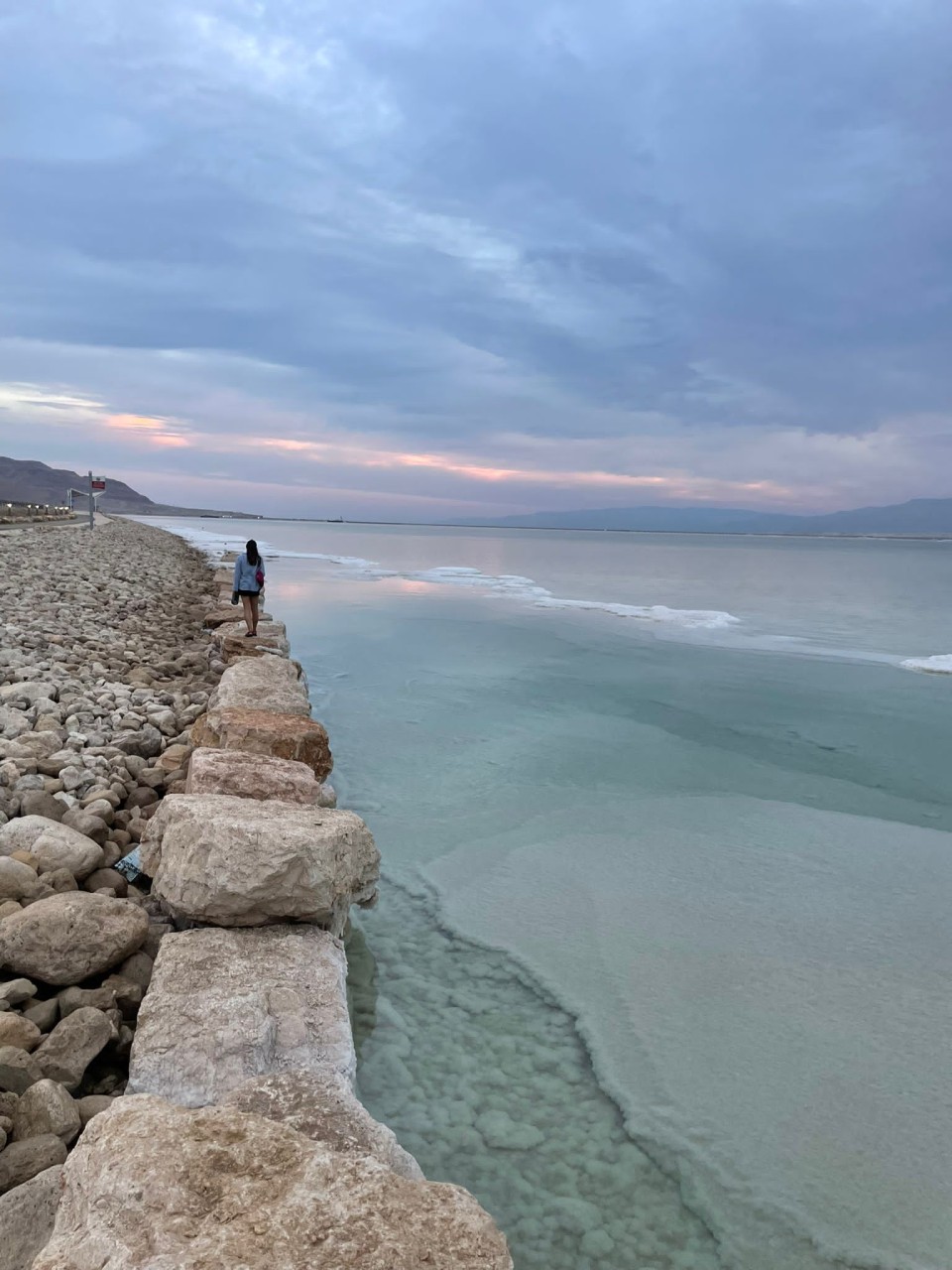Voices Unspoken: Writing Amidst the Chaos of War
Since October 7, 2023, I've been living through a war along with the entire Israeli population of every background. Well-meaning podcasters from abroad interviewing me about my new novel, With A Good Eye, have asked me if I'm in any way affected by the current war in Israel. I've responded that you'd have to be in a coma to be unaffected by the current war, given the devastation of the October 7 massacre, the vast numbers of people called up to serve in reserve duty and the war's affect on the entire social fabric of a country smaller than New Jersey.
Their next question is naturally: tell us how it is affecting you. They seek the day to day, the paying-the-rent types of responses. But no one has thus far asked me how it has affected my writing and anyone for whom writing is a routine part of life.
In times of war, the human spirit is tested in ways that are often beyond comprehension. Amidst the chaos, the desire to express one's thoughts and emotions through writing can be a powerful yet elusive endeavor. Many, myself included, find themselves grappling with the challenge of putting into words the profound and often overwhelming experiences that accompany life in the midst of conflict.
This begs the question, can we write during a war or must we wait for time to pass, at the very least, for the war to be over? And if we agree that we can write during a war, do we have to write about the war? How can we bypass the pain around us and write about anything (the unfinished romance novel, the insightful travel essay, the suspenseful flash fiction piece) without addressing the elephant in the room--the war itself and is it selfish to do so? Through the looking glass of so many funerals and tears, is it not all fluff?
War brings forth a torrent of emotions—fear, courage, despair, and hope—all of which beg to be acknowledged, understood, and, at times, shared. However, the act of translating these sentiments into written words becomes a complex and deeply personal challenge.
And if we want to write about the war, should we or do we risk trivializing it, shrinking within borders something that has no borders? Regardless of our response, the yearning to document one's experiences, to leave a mark on the pages of history, is a common sentiment among those living through war. Yet, the struggle lies in finding the right words, the apt metaphors, to encapsulate the profound impact of conflict on the human psyche. At the beginning of the war, I could not find my own words and so relied on my Yemenite-Israeli father's words about the war he lived through in 1948 and shared with me eighteen years ago when he was seventy years old.
That provided some temporary relief but still I struggle to express how I feel after another dose of the daily news, which arrives hourly if not by the quarter of the hour. The battlefield, despite its cacophony of sounds, often leaves a haunting silence within. How does one express the unspoken trauma, the unshed tears, and the weight of witnessing the unimaginable, such as the grief on the faces of the parents at the funeral of their twenty year old son, of my own son when he confessed a friend of his was among those kidnapped? And even second-hand horror we've all seen on video.
Writing becomes a silent ally, a companion that understands when words fail. Then there are the battles themselves. In my case, the battlefield comes to me second-hand through my son-in-law posted in Israel's North and from close friends of my military-age children who visit while out on a weekend furlough from fighting. This adds another layer of complication of writing about the actual battlefield but it remains an avenue for expression knocking on the back of my mind to escape.
In the chaos of war, finding one's voice can feel like an insurmountable task. Yet, it is within this very chaos that stories yearn to be told. Writers have always grappled with the challenge of navigating through the noise to unearth the narratives that demand to be heard and we should.
To those who feel the urge to write but find themselves ensnared by the complexities of war, remember that your story matters. It may not be easy, and the words may not flow effortlessly, but each attempt to put pen to paper is an act of creative courage—a testament to the indomitable spirit that refuses to be silenced.
In the crucible of war, the struggle to convey the inexpressible is a common thread that binds individuals across time and space. As we grapple with the limitations of language in capturing the full spectrum of human experience during wartime, let us recognize the bravery inherent in the attempt to articulate the unspoken. In writing, even amidst the chaos, lies the potential for healing, understanding, and the preservation of the voices that refuse to be forgotten.
When you subscribe to the blog, we will send you an e-mail when there are new updates on the site so you wouldn't miss them.


Comments